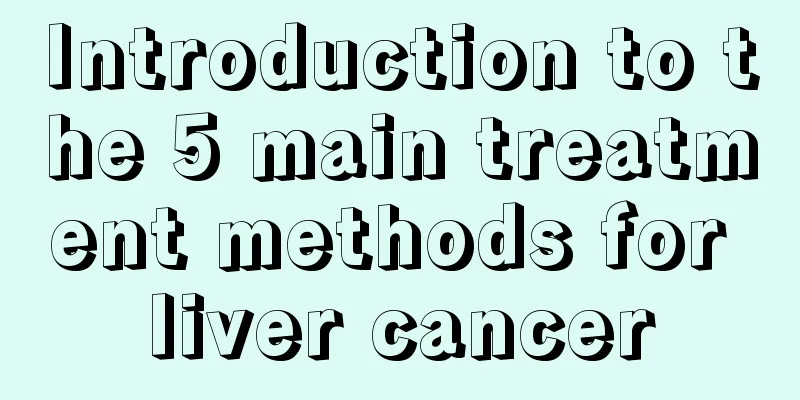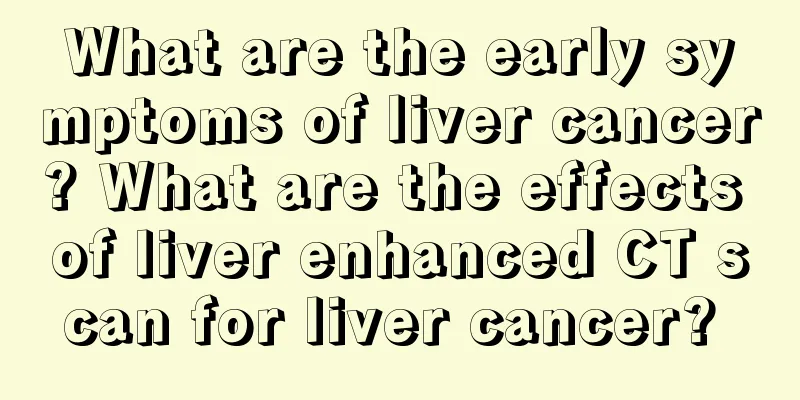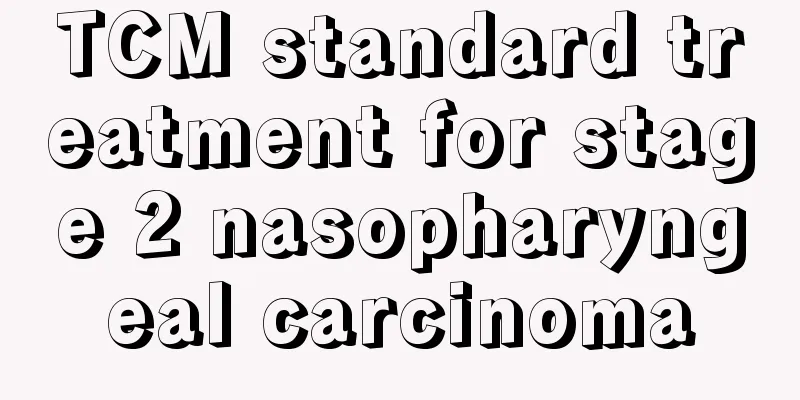Introduction to the 5 main treatment methods for liver cancer

|
There are many ways to treat liver cancer. The choice of treatment method clinically depends mainly on the patient's stage and physical condition. For patients in the early or middle and late stages who are in good physical condition, active surgical treatment is generally recommended, followed by radiotherapy and chemotherapy for best results. 1. Pure surgical treatment has certain limitations It is suitable for radical treatment of early, mid-term and localized liver cancer, and palliative treatment of late stage. Its advantages are that it can temporarily remove large cancerous lesions and has few side effects. Its disadvantages are that it is highly invasive, ineffective for metastatic lesions and cancer cells that have spread through the blood, and has certain limitations. 2. Physical ablation therapy alone is an important method for treating liver cancer It is suitable for radical treatment of early, mid-term and localized solid tumors, or minimally invasive radical treatment or tumor reduction treatment in the late stage. Through CT or B-ultrasound guidance and positioning, local anesthesia, thermal ablation or cryoablation is used to cause coagulative necrosis of the tumor. It has the characteristics of less trauma and faster recovery after surgery. The smaller the tumor, the better the effect. However, poor absorption of necrotic tumor tissue after surgery can cause infection. 3. Simple embolization therapy has strong repeatability It is suitable for palliative treatment of liver function compensation stage tumors. It is a minimally invasive treatment with strong repeatability and fast recovery after surgery. However, it is difficult to completely eliminate cancer cells, so the tumor will continue to grow for a certain period of time. 4. Chemotherapy kills both cancer cells and normal cells It is suitable for adjuvant treatment of patients after surgery, mid-to-late stage cancer, metastatic tumors and subclinical metastatic lesions. After entering the human body, chemotherapy drugs can quickly spread throughout the body through the blood, killing both local cancer cells and metastatic cancer cells. It is a systemic treatment. However, chemotherapy drugs have no specificity for killing cells. While killing cancer cells, they also kill normal cells. In addition, chemotherapy cannot completely kill cancer cells, and there is a possibility of recurrence and metastasis. 5. Radiotherapy is also an important means of cancer treatment It is suitable for local treatment after liver cancer surgery, using the focus of multiple beams of radiation to create high energy to kill cancer cells. However, the radiotherapy cycle is long, generally takes 1 to 2 months, the cost is high, and there are many complications, and even cause partial functional loss. It cannot completely eradicate cancer cells, and cancer cells will grow again within a certain period of time. |
<<: Will liver cyst develop into liver cancer?
>>: Causes of lower limb edema in liver cancer with renal metastasis
Recommend
What should patients with advanced liver cancer eat?
Liver cancer is basically incurable in the late s...
Back pain and left leg pain
Weakness and pain in the body will have a great i...
Pancreatic cancer patients should pay attention to their specific symptoms as early as possible
Pancreatic cancer is a common disease that can ca...
How to make delicious chicken thighs
Fungi are natural plants. Of course, as people le...
Why do hemorrhoids bleed?
Hemorrhoid bleeding is a common symptom, so most ...
What are the methods to remove spots from clothes
Generally speaking, people are very troubled abou...
What should you pay attention to after chemotherapy for small cell lung cancer? Pay attention to these points
During chemotherapy, patients with small cell lun...
Is microneedling effective in removing acne scars?
Acne scars bring troubles to many people. Not onl...
Does impetigo require systemic treatment? Treatment of impetigo
In medicine, impetigo is also called yellow water...
What to do if your mouth is damaged
The so-called oral damage is usually oral ulcer. ...
Pay attention to the symptoms and characteristics of kidney cancer in life
Some people are more likely to develop kidney can...
What is the best medicine for small cell lung cancer
Small cell lung cancer is a type of cancer. Now m...
What to do with the sequelae of type B meningitis
Type B meningitis is also a type of meningitis. I...
Is Spirulina kelp?
We encounter many plants in our lives, such as sp...
Why are my toes numb?
The toes are a part of our lower limbs. They give...









